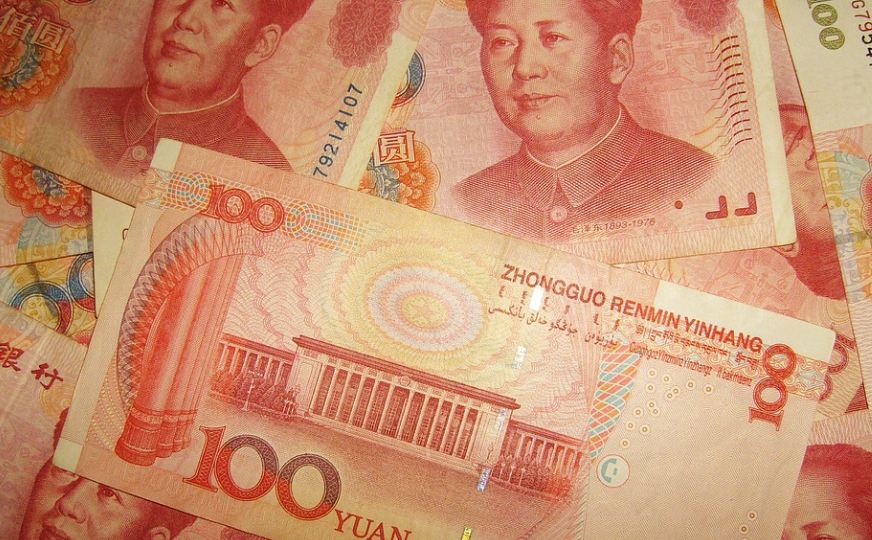Introduction
Consider living in a society that allows you to buy anything—from a vehicle to a cup of coffee—without ever necessitating the use of currency. The “digital yuan” is the name given to China’s ambition for its people. When a nation or company expresses its support, an electronics group’s revenue surges, enriching the sector. Due to the significant state subsidies, many assume Digital Yuan will keep going as planned. The electronic renminbi must do what BTC accomplished. Besides, the Digital Yuan relates to those other cryptocurrency trading venues commercially available. So if you’re searching for anything recognizable to buy, there is little to worry over.
The Virtual Yuan: How Would It Operate?
The electronic yuan would function similarly to other electronic cryptocurrency exchanges if it were to become an actuality. For example, you might purchase products online or trade them in for conventional cash. There are a couple of significant changes, however:
1. The Chinese state will create and oversee the electronic yuan, giving it an edge over competing digital currencies.
2. The digital yuan may play a significant role in China’s efforts to transition to a cashless economy.
3. It implies that you will soon be able to employ it to purchase goods online and in physical stores.
We need to understand all the specifics since the Chinese authorities have been keeping quite a few things concerning the digital yuan under wraps. But if it does, it may significantly affect the world economy.
What Advantages Does a Digital Yuan Offer?
China is preparing to introduce a virtual yuan that is seen as a means for the nation to become less dependent on the US currency and reclaim its position as the world’s leading economic power. The digital yuan will encourage the adoption of contactless banking as China transitions to digital banking. The nation will gain from this in a variety of ways, such as:
– Lower costs: Currency is more costly and carries than card payments and service charges. Users might drastically reduce these expenses with a digital yuan.
– Greater efficiency: Online transaction technologies make it simple and fast to make payments. Trades will move more quickly. As a result, improving the economy’s efficiency.
Cash often is utilized in illegal operations like tax evasion and drug trafficking, which results in less crime. Therefore, the amount of criminal activity would decrease with a digitized yuan.
What Difficulties Would a Modern Yuan Face?
One of the difficulties with a digitized yuan is that it would need a significant upgrade to China’s financial system. The Bank of China, for instance, would be required to create a new infrastructure for controlling and issuing digital money. Additionally, China’s financial institutions would have to figure out how to incorporate the digital renminbi into their current infrastructure.
A digital yuan presents the risk of giving the Chinese authorities excessive economic control. For example, the charges could monitor how citizens spend their funds or even enforce low-interest rates if they adopt a digital currency. Finally, there’s a chance that a virtual yuan may make it simpler for criminals to fund terrorism or launder money. It is so that users can track them less easily than physical money.
What Effects Will the Virtual Yuan Have on the World Economy?
If extensively used, the virtual yuan might significantly affect the world economy. For starters, it may result in the US dollar’s decline as the world’s largest economy. It is because the Chinese authorities, which oversee the sec economies in the world, could endorse the electronic yuan. In addition, users may threaten the US dollar’s supremacy if other nations adopt the digital renminbi for commerce.
The virtual yuan may make it simpler for China to overcome US restrictions. Since the electronic renminbi would be a currency exchange, operations would not need the involvement of banking institutions in the US. The electronic yuan may also make it simpler for Beijing to monitor its residents’ spending. Finally, it is because Chinese authorities may have privy to the blockchain-based records of transactions.
Which other nations are developing cryptos?
Other nations are also embarking on implementing their cryptocurrency initiatives as China moves forward with its intentions for a digital yuan. The Sand Dime was previously introduced by the Bahamian and is presently utilized by certain island establishments. The E-krona initiative, which Swedish is focusing on, is currently in the testing process. Additionally, the Treasury Department in the United States is looking at the idea of launching an electronic dollar.
Numerous private businesses are also engaged in digital currency initiatives. For example, Facebook intends to introduce Libra, its own money, while authorities have expressed concern about the move. Additionally, JPMorgan Chase has developed its cryptocurrency, known as JPM Coin, that is being utilized to settle payments between the bank and its customers.
Conclusion
The electronic yuan is, therefore, an idea worth paying close attention to, even if there is still a significant amount of uncertainty around it, particularly considering its possible consequences on economic growth. Although only time will demonstrate how it all turns out, watching how China’s trial with a cashless transaction develops will be intriguing.



